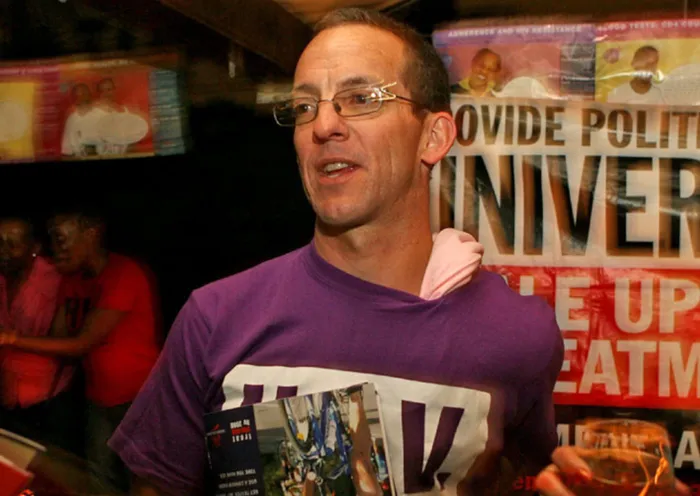#AIDS2016: Panel lashes out at ‘sellout’ activists

TAC treasurer, Mark Heywood. Picture: Neo Ntsoma TAC treasurer, Mark Heywood. Picture: Neo Ntsoma
Durban - Civil society groups and Aids activists are experiencing a global crisis, as co-option by corporations and governments is made to look increasingly sexy and acceptable.
A panel including highly regarded activists Mark Heywood (Section 27), Peter Piot (former under-secretary of the United Nations) and Yvette Rafael (Treatment Action Campaign) led a discussion on the “good, bad and ugly” side of civil society and activism at the international Aids conference in Durban on Wednesday.
“We need to stop the bull***t and the bigotry,” said Rafael. “We have a global problem with funding being poured into activists to shut them up. In South Africa we have celebrity activists; who are they accountable to?”
Civil society organisations were unable to access decision-makers because they were surrounded by gatekeepers.
“Activists can’t be about personal gain. I have problems with activists who drive German machines and stay in suburbs.”
Civil society should never become service providers for governments or the United Nations, she said. “How can leaders acknowledge privilege and its problems when they live in that privilege? How can they set the agenda for the poor?
“The biggest problem in South Africa is civil society selling out our actions. They are amongst us. We have the wrong leaders in civil society groups like SANAC, the South African National Aids Council [who pander to government].”
There should be no political affiliation between civil society and government, and civil society leaders should not attend public meetings in their chosen political party regalia, Rafael added.
“If you stand there in your party colours, you are there to serve Zuma and the ANC, not civil society and the poor. Civil society has become a political party in SANAC,” she said.
Heywood said the term civil society suggested that any action taken within society, whether stupid or counterproductive, couldn’t be a bad thing.
He said civil society was often misrepresented as being anti-government. “We are not anti-government. We are not pro-government either. Civil society is pro-people. When we are pro-government, it is because government must be strengthened and advanced to protect people’s rights. Government must work for people and for Aids.”
He said that South African Minister of Health, Aaron Motsoaledi, should not think he had a friend in civil society. Civil society was not the minister’s friend, it was interested in asking him tough questions, holding him to account and pushing for transparency.
“Civil society must be as professional as our enemies are. We must be accountable and transparent. We must let people know where our money goes and where it comes from. Civil society must be evidence based and evidence driven. The power of civil society lies in the mastery of evidence and deploying that evidence to the benefit of ordinary people.”
Civil society must be angry because there are reasons for anger.
“What are you doing to save my f***ing life?” must be asked of governments, pharmaceuticals and other activists, he said.
Activists should not be comfortable in “conference land”.
“We face problems now in civil society where activists are happy to have selfies taken with politicians on every occasion, instead of speaking truth to power.”
He said that everyone was entitled to ask questions, and the questions activists asked of others should be asked of themselves.
“Who funds you? Where is the money going? Civil society must turn the spotlight on itself as much as turns it on other people.”
It was time to stop the self-congratulations, said Piot, which defied the very nature of activism. “We must never be content until we have reached the ultimate goal [treatment and prevention for all]. We are far away from that.”
The activist’s dilemma was that organisations needed funding but should not become part of “the system”.
“The soul and culture of the activist movement is damaged when management and efficiency considerations of states or pharmaceuticals have to be implemented by activists,” he said.
It was sad and surprising to see some civil society representatives feeling that negotiating with organisations like the United Nations afforded them more respect and understanding.
Hashtag activism and clicktivism were a problem, he said.
“You can’t replace the real world with a click. You can’t click to end poverty. Hashtagging does not contribute to saving the world. Social media must be turned into real activism. Activism is only activism if there is pushback. If there is no pushback, activists aren’t pushing enough.”
Civil society would be strengthened by a renewal of activism and civil society leadership.
“We must choose our battles. Accountability is important for activists. Activism on the ground is dwindling. There should be a distinct pot of money to support on the ground activism as a public good. We need to continue to speak truth to power and link that to action, not hashtags.”
African News Agency